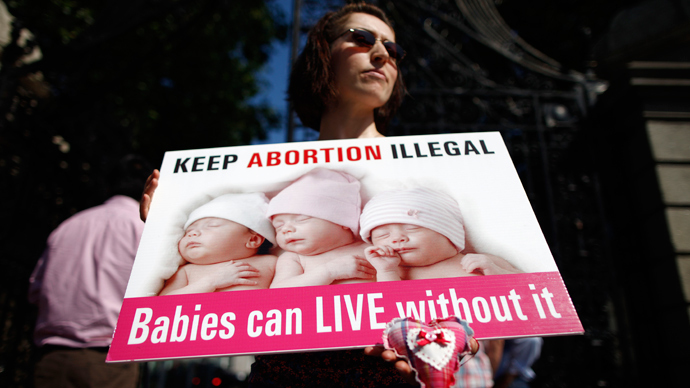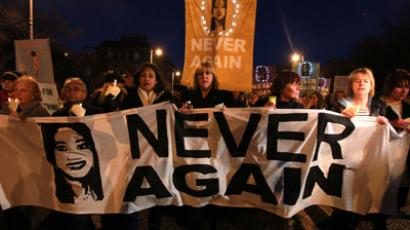Controversial Irish abortion law comes into effect

A law allowing abortion in some circumstances when a woman’s life is considered to be in danger has come into force in the strongly Roman Catholic country of Ireland, despite clinical guidelines for doctors to follow not yet being in place.
The Protection of Life During Pregnancy Act allows abortions where doctors believe there is a threat to the life of the mother.
The controversial law was passed in July after the death of Savita Halappanavar who was refused an abortion while miscarrying in October 2012.
The 31-year old Indian dentist was denied a termination because her life was not thought to be at risk but died a week later of septicemia.
Irish Health Minister James Reilly said that the Coalition government would not be taking any more measures and that the abortion issue is now dealt with. He added that the precise guidelines on the legislation will be worked out by the Medical Council.
“The one outstanding issue is the clinical guidelines, which are a matter for clinicians and totally out of our control.There will be clinical guidelines for obstetricians from the Institute of Obstetricians and for psychiatrists from the Royal College of Psychiatrists,” he told the Irish Independent.
Reilly insisted that abortions can be carried out without the guidelines being in place.
If a woman’s life is thought to be at risk, then one doctor can make the decision to allow her to have an abortion. However, if there is deemed to be a substantial risk to a woman’s life from suicide then the assessment involves three specialists including a gynecologist and two psychiatrists.

The abortion issue was a divisive one in Ireland, which is a staunchly Roman Catholic country.
“This is a hugely emotive issue that has divided Irish society and has been avoided by several governments. And I did undertake in the Dail (parliament) early on that we wouldn’t be the seventh government to leave it behind us,” he said.
The government has said that the new law does not weaken the general prohibition on abortion in the country, which sees many Irish women travel to the UK to terminate pregnancies. Abortion will still not be allowed when a woman has been raped or when the fetus has serious deformities.
Caroline Simons from the Pro Life Campaign said in July that the law will now make it possible to target the life of an innocent human being.
“Despite what the Taoiseach and others claim, the new law is life-ending, not life-saving. The government brought forward this law in the full knowledge that abortion is not a treatment for suicidal feelings and ignored all the peer reviewed evidence showing that abortion has adverse mental health consequences for women," she said.
Mara Clarke, director of the London-based Abortion Support Network, which raises money to help Irish woman pay the costs of having an abortion in Britain told the Guardian in July that the law will only enable a tiny minority of women to have abortions and the vast majority will be in exactly the same position they were before the legislation was passed.
“I'm not an expert on Irish abortion law. I am an expert in what happens to women when access to abortion is restricted. Even if this law is enacted, only a very, very small percentage of women who need abortions will be able to access them in Ireland,” she said.














